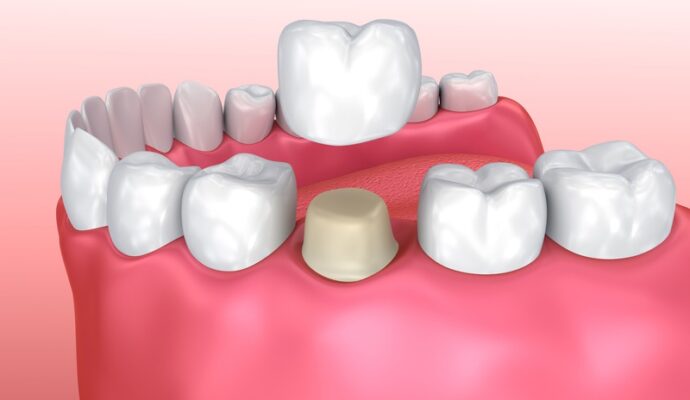Dental phobia, a widespread fear of dental visits, can keep many individuals from seeking necessary care. This fear often leads to neglected oral health, which can escalate into more severe dental issues. Understanding the impact of dental phobia and exploring strategies to manage it can empower individuals to maintain their oral health without unnecessary anxiety.
Practical Steps to Manage Dental Phobia
Dental phobia doesn’t have to be a barrier to necessary dental care. The right strategies can help manage this fear effectively. Exploring these options can provide a smoother path to overcoming dental anxiety:
-
Establish Open Communication: Speaking transparently with a dentist about specific fears creates a trusting environment. Dentists are usually open to listening and adjusting their approach to make patients comfortable.
-
Employ Relaxation Methods: Techniques such as deep breathing, mindfulness, and even listening to calming music can reduce anxiety during dental visits. Personalizing these methods to fit individual preferences can increase their effectiveness.
-
Gradual Exposure: Beginning with non-invasive treatments can help individuals gradually acclimate to the dental environment. This approach enables a smoother transition to more involved procedures.
-
Visit the Dental Office in Advance: Scheduling a preliminary visit to the dental office, without the pressure of a procedure, can help familiarize individuals with the environment. This allows them to feel more at ease during future appointments.
-
Seek Professional Help: Cognitive Behavioral Therapy (CBT) is a valuable tool for managing dental phobia. By altering negative thinking patterns, CBT helps alleviate anxiety surrounding dental care.
Routine Dental Visits
Even with dental phobia, routine dental visits remain crucial for oral and overall health. These visits prevent more severe issues like gum disease or tooth decay from arising and help detect any emerging problems early. Emphasizing the benefits of consistent dental checkups can motivate individuals to prioritize dental care, even in the face of anxiety.
Innovative Technology to Ease Dental Anxiety
Technological advances in dentistry have significantly reduced the discomfort associated with dental procedures. Utilizing modern techniques can be an appealing option for individuals managing dental phobia. It offers a more comfortable and less intimidating experience.
-
Laser Treatments: These treatments minimize pain and accelerate recovery, making them ideal for those wary of traditional procedures.
-
Digital Imaging: Digital X-rays offer prompt and non-invasive imaging, enhancing patient comfort during the examination process.
-
Sedation Options: Using sedation methods, such as nitrous oxide or oral sedatives, can significantly diminish anxiety levels, making dental visits more bearable.
Choosing the Right Dental Professional
Selecting a dentist skilled in managing dental anxiety is vital. Such professionals recognize the importance of patient comfort and are dedicated to providing a calming dental experience. Consider options like an esthetic dentist in Duluth, GA who can offer personalized, anxiety-alleviating care. These experts are adept at creating an environment that fosters reassurance and reduces fear.
Maintaining Dental Health at Home
Good home dental care plays a significant role in reducing dental phobia as it can minimize the intensity of required treatments. By practicing consistent oral hygiene, individuals gain control over their dental health, reducing the frequency of intensive procedures.
Regular brushing, flossing, and using mouthwash ensure healthy teeth and gums. These practices not only promote oral hygiene but also build confidence in managing dental health independently from the dentist’s chair.
Building a Trusting Dentist-Patient Relationship
Developing a comfortable relationship with a dentist can make dental visits far less intimidating. Trust and open communication allow patients to express their concerns and fears freely. This trust can transform the dental experience into a more positive one, making it easier to overcome anxiety.
When selecting a dentist in Duluth, GA, consider professionals who offer tailored care. They often emphasize patient-centered approaches, making it easier to establish a trusting relationship that fosters a sense of security during dental treatments.
Treatment Options Targeting Dental Anxiety
Specific treatment options designed to address dental anxiety can also be beneficial. This can include therapy and medicinal options that provide relief during dental appointments. Finding the right treatment may require trial and adaptation, but it can lead to significant relief.
Medications prescribed by healthcare providers can reduce anxiety temporarily, ensuring dental visits are more relaxed. Always consult with both your dentist and doctor to explore these options safely and effectively.
Preparing for Complex Dental Procedures
When faced with elaborate procedures like getting a root canal treatment by a dentist in Duluth, thorough preparation can alleviate associated fears. Discussing steps and options with your dental team beforehand ensures clarity and preparedness, mitigating anxiety. Being informed about the process, sedation options, and recovery can greatly ease fears. Clear communication with the dental team allows patients to confront these complex procedures with greater confidence and calm.
Support from Family and Friends
Encouragement from family and friends provides an additional layer of comfort. Their presence during dental visits or simply discussing concerns with loved ones can significantly ease the anxiety associated with dental phobia. Suggesting group dental visits or seeking encouragement from family members who routinely attend their own appointments can also make the dental experience feel less daunting. Positive reinforcement from a support network promotes a healthier outlook on dentistry.
Closing Remarks
Dental phobia is a manageable issue once effective strategies are in place. By understanding the importance of dental visits, utilizing modern technology, and seeking professional help when needed, individuals can overcome their fears. Access to expert dental professionals, like those specializing in anxiety management, makes it even more feasible to address dental phobia head-on. Confronting these fears can be a transformative step towards improved oral health, benefitting long-term well-being. Engaging with these options today ensures a healthier, more confident tomorrow.




